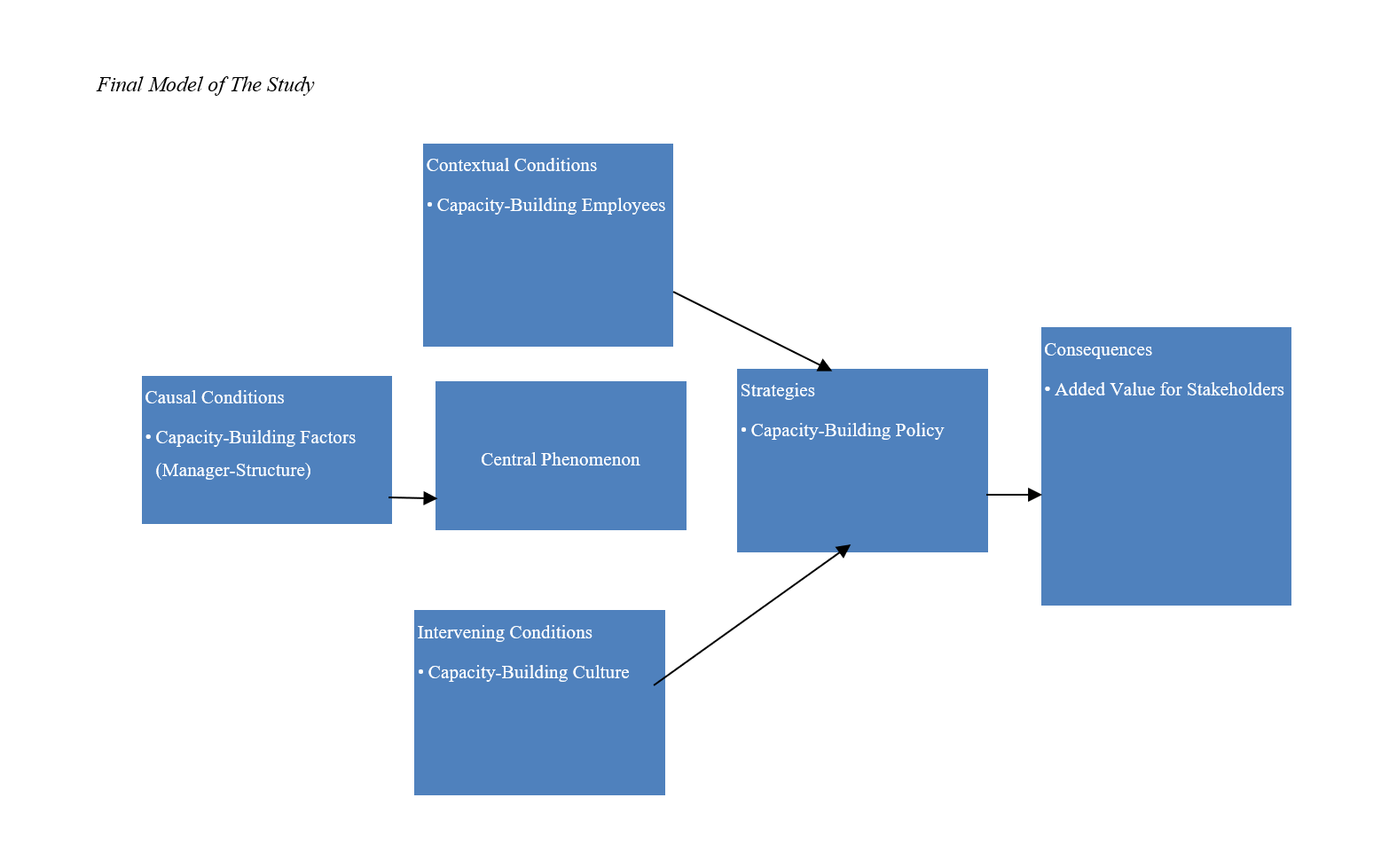Designing a Capacity-Building Organizational Model with a Grounded Theory Approach (Case Study: Municipalities of West Azerbaijan Province)
Keywords:
Model, Organization, Municipality, Capacity Building, Grounded TheoryAbstract
Objective: The purpose of this research is to design a capacity-building organizational model in the municipalities of West Azerbaijan Province.
Methodology: This study was conducted using a qualitative research strategy, employing grounded theory and the Strauss and Corbin paradigm model, aiming to provide a comprehensive model for capacity building in municipal organizations. In this regard, semi-structured interviews were conducted using theoretical sampling until theoretical saturation was achieved. In this study, data reached theoretical saturation after conducting 11 interviews. However, to ensure sufficiency, five additional interviews were conducted. Participants in the study were selected from university professors and individuals with management experience in municipal organizations. Data were collected during April to July 2022, with the permission of the participants recorded. The data were then transcribed and, after several readings, analyzed using MAXQDA10 software. After performing the three stages of open, axial, and selective coding, the final model was obtained by the researcher.
Findings: The findings include the capacity-building organization as the central category, causal conditions (capacity-building manager and structure), contextual factors (capacity-building employees), intervening conditions (capacity-building culture), strategies (capacity-building policy), and consequences (outcomes for the organization, individual, and group) within the framework of the paradigm model.
Conclusion: Each of these conditions and factors are composed of variables and categories that contribute to achieving the ultimate goal of the capacity-building organization in the municipalities.
Downloads

Downloads
Additional Files
Published
Issue
Section
License
Copyright (c) 2024 Afshin Mirhesami (Author); Roholah Samiei (Corresponding Author); Mohammad Bagher Gorji , Naser Tawre (Author)

This work is licensed under a Creative Commons Attribution-NonCommercial 4.0 International License.















